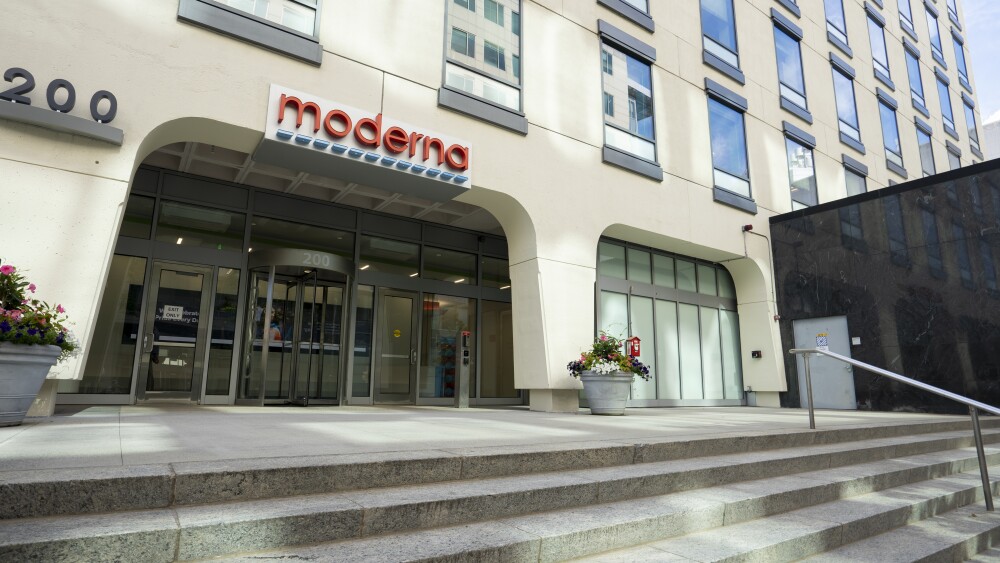There is no evidence that the lapses have harmed patients who received Spikevax or clinical trial participants who received investigational shots.
Pictured: Entrance to Moderna’s office in Massachusetts/iStock, hapabapa
The FDA in September found quality control problems at Moderna’s main manufacturing plant, including issues with equipment that the company used to produce its COVID-19 vaccine, according to an exclusive report by Reuters published Friday.
The lapses were flagged during an FDA inspection from September 11 to 21 at Moderna’s site in Norwood, Massachusetts, according to documents that Reuters obtained via a Freedom of Information Act request.
The FDA’s report stated that Moderna had released eight batches of the active ingredient used in Spikevax, its COVID-19 vaccine, using equipment that had failed the company’s own cleaning verification protocols.
Aside from Spikevax, Moderna also uses its Norwood facility to manufacture experimental vaccines that it is currently developing.
Additionally, the regulator found that Moderna’s Norwood site did not have the proper safeguards to prevent airborne contamination from getting into its products, nor did the company have adequate measures to ensure that expired materials were not used in manufacturing, Reuters reported.
In the Form 438, the FDA’s inspectors found more than 2,000 expired items that were not kept separate from other materials. The report also noted that some materials had been used after their expiration dates.
Despite the quality control problems, Reuters reported that there is no evidence that any of the affected batches were released, or that the lapses resulted in harm to patients who had been given Spikevax or clinical trial participants who had been dosed with any of its investigational vaccines. The FDA has not issued any recall of Moderna’s vaccine.
BioSpace has reached out to Moderna for comment and will update this piece accordingly.
The Reuters report comes as Moderna weathered a sharp revenue decline in the third quarter of 2023, driven primarily by a steep drop in demand for its COVID-19 shot. Net product sales for the company dipped 44% from last year, due mostly to lower sales volume, which could not be completely offset by a higher average selling price for Spikevax.
Also during the third quarter, Moderna sustained a cost of $1.3 billion for inventory write-downs related to “excess and obsolete COVID-19 products.”
To turn its course around, Moderna is seeking to leverage its mRNA platform to produce vaccines for other conditions, including cancer. Last week, the company reported that its investigational shot V940/mRNA-4157, developed in collaboration with Merck, in combination with Merck’s blockbuster PD-1 inhibitor Keytruda (pembrolizumab), cut the risk of death or recurrence by 49% at three years versus Keytruda alone in high-risk melanoma patients after complete resection.
Moderna and Merkc are also assessing the investigational vaccine in non-small cell lung cancer and plan to expand into other tumor types.
Tristan Manalac is an independent science writer based in Metro Manila, Philippines. He can be reached at tristan@tristanmanalac.com or tristan.manalac@biospace.com.






